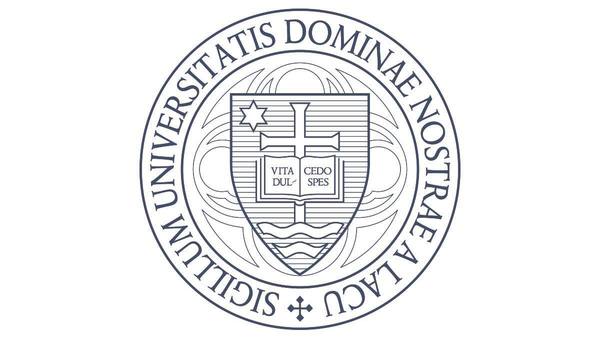Indiana Research Consortium will advance tech, promote economic growth and attract top talent and industries to the state of Indiana
Purdue University, Indiana University and the University of Notre Dame have formalized a joint research effort to address the nation’s most critical defense challenges.
The Indiana Research Consortium (IRC) will leverage the combined strengths, facilities and capabilities of the state’s three leading research universities, which together have decades of cutting-edge defense experience, in support of the Naval Surface Warfare Center, Crane Division (NSWC Crane) mission.
Officials from the three universities gathered at WestGate Academy on Monday (June 3) to sign a memorandum of understanding (MOU) and begin planning discussions for the consortium.
The IRC is a regional research engine that aims to drive innovations and advancements in areas critical to U.S. national security while positioning Indiana as a hub for defense research. The consortium is a first-of-its-kind defense research effort in the state. Whereas existing university-affiliated research centers connect individual universities with the U.S. Department of Defense, the IRC unites Indiana’s leading research institutions to advance defense technologies and the broader research and development landscape.
Each of the founding institutions brings a proven track record of successful collaborations with the Department of Defense, along with significant investments in national security research and infrastructure. Together, they will work to address challenges in areas including microelectronics, hypersonics, energetics and cyber-physical systems while concurrently developing the critically needed workforce.
“Indiana is home to a deep bench of research experts and programs that are critical to our national defense. Through the spirit of collaboration and cooperation by the state’s three leading research universities, we can pool our expertise and programs to support the missions of NSWC Crane and the Defense Department and help to solve significant challenges in key areas of national security research,” said Karen Plaut, Purdue University executive vice president for research. “Indiana’s superpower is working together to solve big problems, and this is the first step toward that goal.”
Purdue’s unique defense research capabilities include the nation's largest low-disturbance hypersonic tunnel (Mach 6 Quiet Tunnel); advanced hypersonic test and manufacturing facilities; high-precision research in microelectronics; the Purdue Energetic Research Center; and cybersecurity research programs through CERIAS, the world’s foremost interdisciplinary academic center for cyber and cyber-physical systems. Purdue is also home to state-of-the-art research facilities like Birck Nanotechnology Center and Maurice J. Zucrow Laboratories and workforce development initiatives such as Scalable Asymmetric Lifecycle Engagement (SCALE) and the Defense Civilian Training Corps.
Notre Dame researchers plan to contribute key expertise in areas such as microelectronics, hypersonic flight and cyber-physical systems. Researchers will also draw upon the University’s world-class infrastructure for nanofabrication, materials analysis and hypersonic testing.
“The most difficult challenges we have to tackle as a society are not ones that any of us can solve alone — and ensuring national security for the next generation is one of those challenges,” said Jeff Rhoads, Notre Dame vice president for research. “Partnering on projects with the scientists and engineers at NSWC Crane will give researchers at Notre Dame, IU and Purdue an unprecedented opportunity to understand national security-related challenges and translate their findings into meaningful improvements in our nation’s, and our allies’, safety and security.”
IU is home to cutting-edge programs in resilient microelectronics, cybersecurity, cyber-physical security systems, artificial intelligence/machine learning, high-performance computing and secure data analytics. The IU Center for Reliable and Trusted Electronics, a universitywide center under IU Research, is testing and designing radiation-hardened microelectronics that can withstand extreme conditions.
“The Indiana Research Consortium will leverage IU’s immense research expertise to support today’s defense challenges, including robust networks to aid the analysis of vast amounts of data and workforce training programs to prepare our students for in-demand careers,” said Russell J. Mumper, IU vice president for research. “We will work in conjunction with our partners at Purdue and Notre Dame to grow our transformative research to make Indiana a leader in defense research and increase the security of our state, nation and world.”
In addition to research endeavors, the consortium will focus on a multi-university workforce development infrastructure and will take advantage of existing programs and create new methods for talent development.
NSWC Crane, a shore command and federal laboratory of the U.S. Navy, will leverage its technical capabilities in microelectronics and hypersonics to support the IRC mission through access to facilities and opportunities for collaboration with U.S. Navy scientists and engineers.
“We are thrilled to see Indiana’s premier R1 universities take this collaborative approach to support critical technology areas that align with our naval mission,” said Kyle Werner, NSWC Crane deputy technical director. “Individually, each of the universities has an impressive research portfolio and has made significant institutional investments to Defense Department research opportunities. NSWC Crane looks forward to a collaborative partnership with the IRC to bring our combined strengths to bear on our nation’s highest-priority research challenges.”
The IRC will collaborate with NSWC Crane on the following projects to bolster U.S. defense capabilities:
-
Creating a “Consortium for Secure Microelectronics” that accelerates the transition of chip technology from commercial to defense markets.
-
Building a series of hypersonic reference design vehicles at scale to meet mission requirements.
-
Developing energetic materials that provide superior range, speed and energy through full-scale manufacturing.
-
Establishing a framework to update naval cyber-physical systems using advanced technologies such as AI-enabled control, modeling, testing, verification and provenance tracking.
The MOU signing was held in conjunction with an appreciation event for teachers participating in SCALE K-12, a program that provides curriculum development and teacher training to integrate microelectronics into K-12 classrooms as a way to generate early interest in the field. SCALE K-12 is part of the Purdue-led SCALE, which is funded by the Department of Defense and managed by NSWC Crane.
The founding members of the IRC addressed the teachers involved in this program and emphasized its importance to developing the microelectronics workforce — a key aspect of the consortium’s mission.
In the future, the IRC will explore establishing more formal structures to enable more effective collaboration between the universities and any affiliated partners.
Latest University News
- Gen. Martin Dempsey to speak at Notre Dame Forum event on ‘Hope, Global Stability and the Role of the United States’Gen. Martin Dempsey, the retired 18th chairman of the Joint Chiefs of Staff, will join University President Rev. Robert A. Dowd, C.S.C., for a fireside chat at 4 p.m. Friday (Oct. 10), as part of the 2025-26 Notre Dame Forum. The discussion, titled “Hope, Global Stability and the Role of the United States,” is part of the exploration of this year’s Notre Dame Forum theme, “Cultivating Hope.” It will take place in Rooms 215/216 of McKenna Hall and will also be livestreamed. The event is free and open to the public.
- University of Notre Dame joins the Global Coalition of Ukrainian StudiesThe University of Notre Dame has joined the Global Coalition of Ukrainian Studies after signing a memorandum of cooperation, formalized Sept. 24, at the Ukrainian Institute of America in New York City. Notre Dame joined four other American institutions that were also publicly welcomed to the coalition at this event: Arizona State University, Columbia University, Manor College and the Shevchenko Scientific Society.
- Alumni Association and YoungND honor 2025 Domer DozenThe Notre Dame Alumni Association announced its 2025 Domer Dozen cohort, honoring 12 graduates ages 32 and younger for excellence in their contributions in learning, service, faith and work — the core pillars of the association’s mission.
- Notre Dame School of Architecture poised for global leadership through historic investmentThe $150 million gift represents an unprecedented commitment in the 160-year history of American architectural education. In recognition of this landmark gift, the school will be renamed the Matthew and Joyce Walsh School of Architecture at Notre Dame.
- Board of Trustees announces external investigation into allegations of past sexual misconduct by former rectorThe University of Notre Dame today announced that the University’s Board of Trustees has convened a special committee at the request of President Rev. Robert Dowd, C.S.C., and John Veihmeyer, chair of the Board of Trustees, to oversee an external investigation into allegations that Rev. Thomas King, C.S.C., engaged in sexual misconduct while rector of Zahm Hall, where he served from 1980 to 1997. The external investigation will be led by Helen Cantwell at the law firm of Debevoise & Plimpton LLP, and the key findings of the investigation will be shared with the University community.
- Notre Dame Democracy Initiative hosts bipartisan conversation with Western state governorsTwo Western state governors known to work across the aisle on policy issues such as water, housing and energy will visit the University of Notre Dame for a fireside chat about how Western state pragmatism can serve as a model for the country to overcome polarization.













